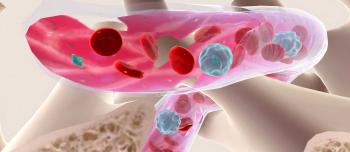Sangamo Biosciences recently reported progress in the development of a number of novel technologies, including one with therapeutic applications for hemophilia. The company is employing its proprietary In Vivo Protein Replacement Platform™ (IVPRP) to hone a “genome editing” approach to therapies for hemophilia A and B.
IVPRP uses adeno-associated viruses (AAVs) as delivery vehicles, or vectors, to carry the genetic codes that initiate the production of the deficient factor protein--factor VIII (FVIII) for individuals with hemophilia A and factor IX (FIX) for those with hemophilia B. The AAVs deliver this genetic material into liver cells without causing disease or triggering significant immune responses. The AAVs are further customized to include genetic editing “scissors” called zinc finger nucleases (ZFNs) that allow a functioning FVIII or FIX gene to be inserted into a specific location in liver cells, where they enable the production of potentially therapeutic levels of the needed factor protein.
The Company’s hemophilia B program is currently in Phase 1 clinical development and Sangamo expects to treat the first subject in the first half of 2016 at Duarte, CA-based City of Hope, a leading research and treatment center for cancer, diabetes and other life-threatening diseases. Sangamo’s hemophilia A program is in pre-clinical development.
In addition to the IVPRP approach, Sangamo has also developed a traditional gene therapy approach for hemophilia A using an enhanced AAV to deliver a functioning human FVIII gene cassette without ZFNs. Both approaches have shown early success in lab mice with hemophilia A and non-human primates. New data from Sangamo’s conventional gene therapy approach were presented during the 19th Annual Meeting of the American Society of Gene and Cell Therapy in Washington, D.C., May 4-7, 2016. Using their enhanced vector and human FVIII gene cassette, the company reported significant increases in FVIII yields, including 331% of normal FVIII levels in a mouse model of hemophilia A 42 days after receiving the therapy. In nonhuman primates, an overall mean of 654% of normal FVIII was achieved.
“The enhanced vector yields, combined with levels of protein expression of factor VIII that have never been achieved before in mice or non-human primates, are a testament to the engineering expertise of our research team,” said Edward Lanphier, Sangamo‘s president and chief executive officer. Lanphier added that the company looks forward to providing study and program updates later in the year.
Source: Sangamo press release dated May 9, 2016





